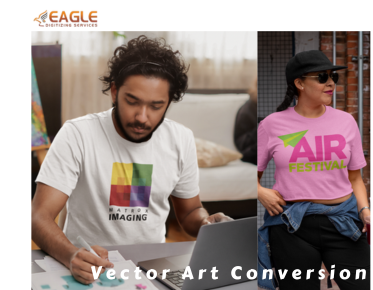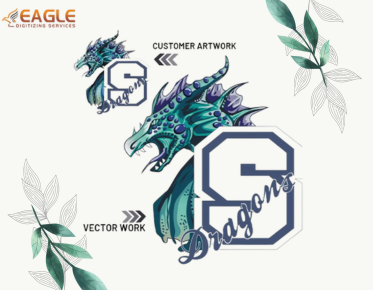How to Optimize Vector Graphics to Improve Website Loading Speed
html
In today's digital age, website loading speed is crucial for user experience and search engine optimization. One of the key elements that can significantly impact loading speed is the use of vector graphics. By optimizing vector graphics, you can enhance your website's performance, ensuring a seamless experience for your visitors.
Understanding Vector Graphics
Vector graphics are composed of paths defined by mathematical expressions, allowing them to be scaled infinitely without losing quality. This makes them ideal for responsive web design, where images need to adapt to different screen sizes. Unlike raster images, which are made up of pixels, vector graphics are resolution-independent, ensuring crisp and clear visuals on any device.
The Importance of Vector Graphics in Web Design
Vector graphics play a vital role in modern web design due to their scalability and versatility. They are commonly used for logos, icons, and illustrations, providing a professional and polished look to websites. Additionally, vector graphics typically have smaller file sizes compared to high-resolution raster images, contributing to faster loading times.
Strategies for Optimizing Vector Graphics
To fully leverage the benefits of vector graphics, it's essential to optimize them effectively. Here are some strategies to consider:
1. Simplify Paths
One of the most effective ways to optimize vector graphics is by simplifying paths. Complex paths with numerous anchor points can increase file size and processing time. Use vector editing software to reduce the number of anchor points without compromising the design's integrity.
2. Use Appropriate File Formats
Choosing the right file format is crucial for optimization. SVG (Scalable Vector Graphics) is the most popular format for web use due to its compatibility with all major browsers and its ability to be compressed. Additionally, SVG files can be easily edited with code, allowing for further optimization.
3. Compress SVG Files
Compressing SVG files can significantly reduce their size, improving loading speed. Tools like SVGO (SVG Optimizer) can help remove unnecessary metadata and whitespace, streamlining the file for web use. Ensure that compression does not affect the visual quality of the graphic.
4. Minimize Use of Gradients and Effects
While gradients and effects can enhance the visual appeal of vector graphics, they can also increase file size. Use these elements sparingly and consider simpler design alternatives to maintain a balance between aesthetics and performance.
5. Implement Lazy Loading
Lazy loading is a technique that defers the loading of non-essential images until they are needed. By implementing lazy loading for vector graphics, you can prioritize the loading of critical content, improving the initial loading speed of your website.
Tools for Vector Graphic Optimization
Several tools are available to assist in optimizing vector graphics. These tools can automate the process, ensuring efficient and effective optimization:
1. Adobe Illustrator
Adobe Illustrator is a powerful vector editing tool that offers features for path simplification, file format conversion, and more. It is widely used by designers for creating and optimizing vector graphics.
2. Inkscape
Inkscape is a free, open-source vector graphics editor that provides a range of tools for optimization. It supports SVG format and offers features for path editing, compression, and more.
3. SVGO
SVGO is a command-line tool specifically designed for optimizing SVG files. It removes unnecessary data, compresses files, and ensures that SVG graphics are web-ready.
Impact of Optimized Vector Graphics on SEO
Optimizing vector graphics not only improves website loading speed but also positively impacts SEO. Faster loading times lead to better user experience, reducing bounce rates and increasing the time users spend on your site. Search engines favor websites that provide a seamless experience, potentially boosting your site's ranking.
Future Trends in Vector Graphic Optimization
As technology advances, new trends in vector graphic optimization are emerging. One such trend is the use of AI-powered tools that automate the optimization process, making it more efficient and accessible. Additionally, the integration of vector graphics with responsive design frameworks is becoming increasingly popular, allowing for more dynamic and interactive web experiences.
In conclusion, optimizing vector graphics is essential for improving website loading speed and enhancing user experience. By implementing the strategies and tools discussed, you can ensure that your website remains competitive in the digital landscape. As the demand for high-quality visuals continues to grow, staying ahead of optimization trends will be crucial for success. Eagle Digitizing excels in delivering professional vector art services, transforming creative visions into scalable designs.


.png)
